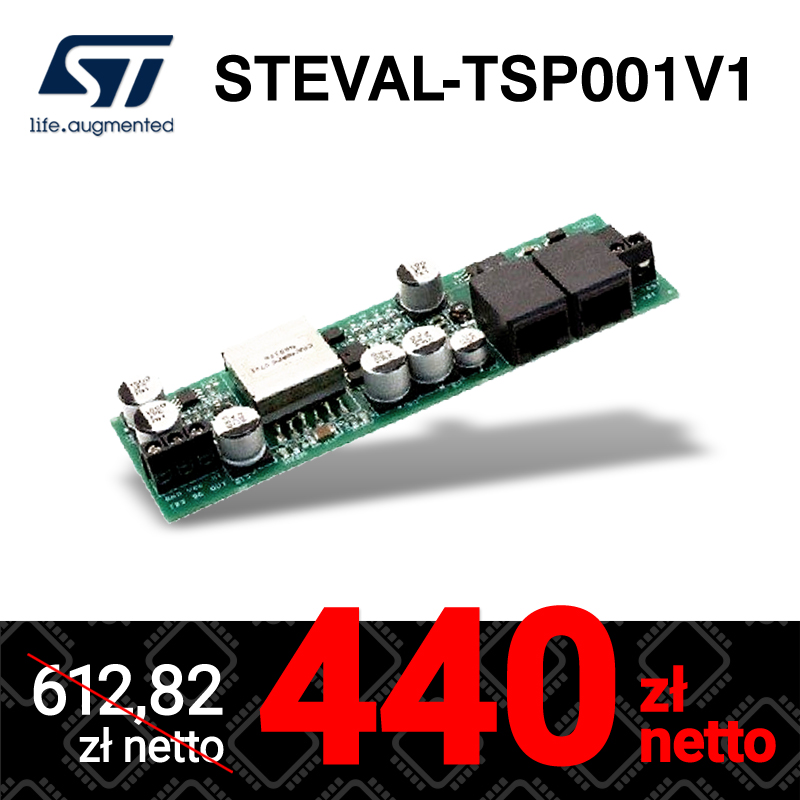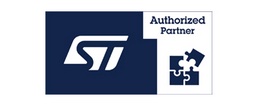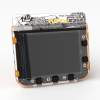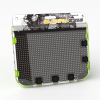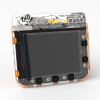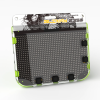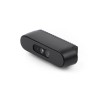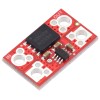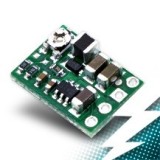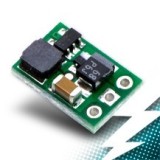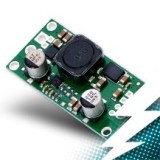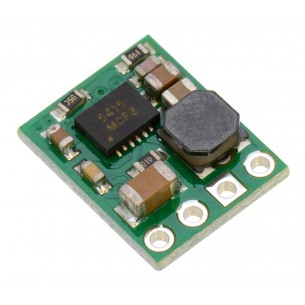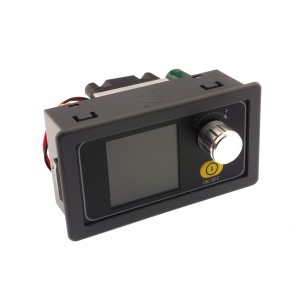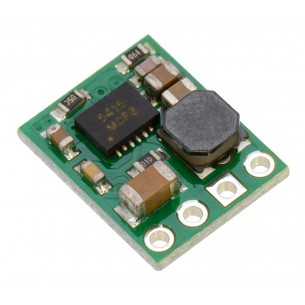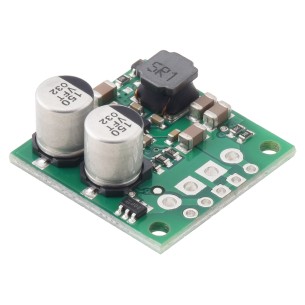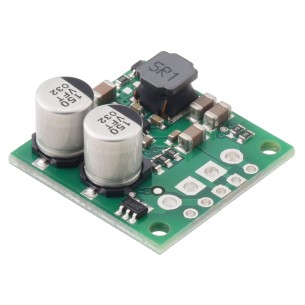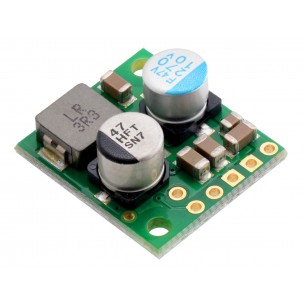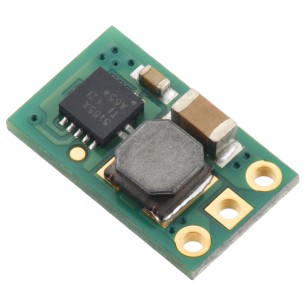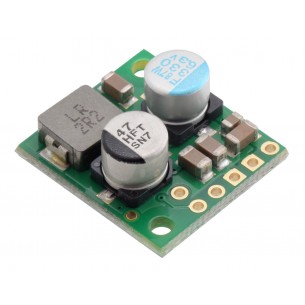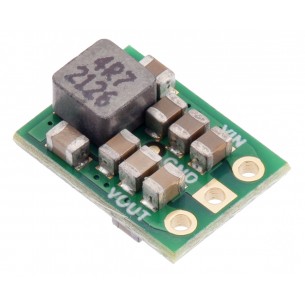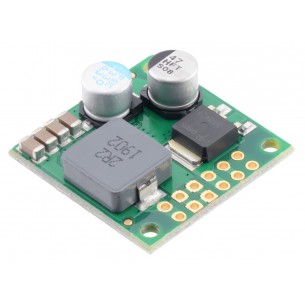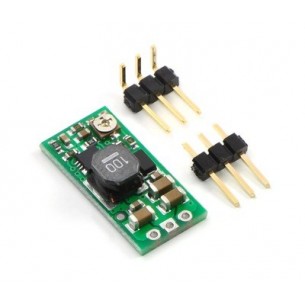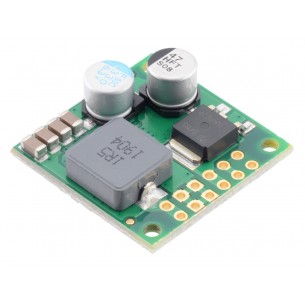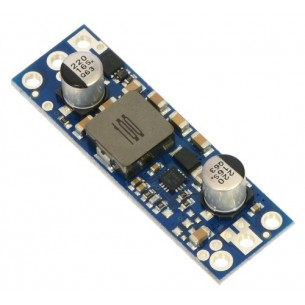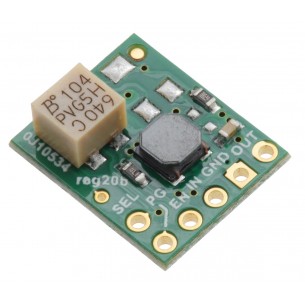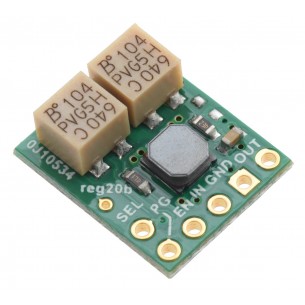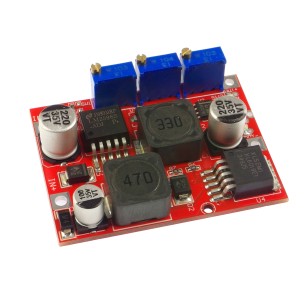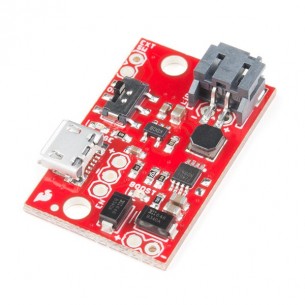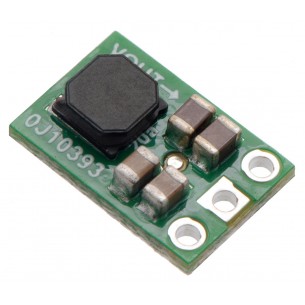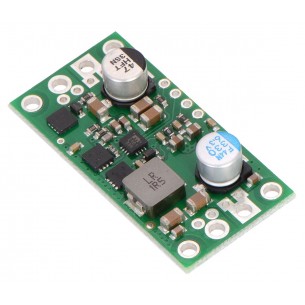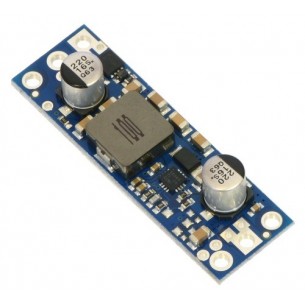Products
Categories
- Main categories
-
- 3D PRINTING
- ARDUINO
- AUTOMATION
- BOOKS
- CYBERSECURITY
- EDUCATION
- ELECTRONICS
- Cables
- Cameras and accessories
- Communication
- Conductive materials
- Connectors
- ARK connectors (Terminal Block)
- Banana connectors
- Coaxial connectors (RF)
- Connectors
- Crocodile clip
- D-Sub drawer connectors
- DC power connectors
- FFC/FPC ZIF connectors
- Goldpin connectors
- IDC connectors
- JACK connectors
- JST connectors
- Jumpers
- Memory cards slots
- Other connectors
- Pogo pin
- Quick couplers
- RJ45 connectors
- Slip ring connector
- Supports
- USB connectors
- USB PD Adapters for Laptops
- WF connectors
- Cooling
- Displays
- Electronic modules
- A/D and D/A converters
- Audio
- Barcode readers
- CAN converters
- Converters USB - UART / RS232
- Cryptographic module
- Data logger
- DDS/PLL generators
- Digital potentiometers
- Encoders
- Expanders of the I/O
- Fingerprint readers
- Galvanic isolation modules
- HMI modules
- Image and video
- JTAG accessories
- Keyboards, buttons
- LED drivers
- Memory card readers
- Memory modules
- Modules with power outputs
- Motor controllers
- Power modules
- Protection modules
- RS485 converters
- RTC modules
- Servo Controllers
- TSOP infrared receivers
- USB Converters - I2C / 1-Wire / SPI
- Voltage converters
- Gadgets
- GPS
- Intelligent clothes
- LED - diodes, displays, stripes
- Luminous wires and accessories
- Machine vission (MV)
- Memory cards and other data storages
- Passive elements
- PC accessories
- Printers
- Programatory czasowe
- Prototype boards
- Relays
- Semiconductors
- A/C converters (ADC)
- Analog systems
- Audio systems
- Bridge rectifiers
- Button
- D/A Converters (DAC)
- DDS synthesizers
- Digital circuits
- Diodes
- Drivers of motors
- DSP microprocessors
- Energy counters
- Energy harvesting
- ESD security
- IGBT drivers and bridges
- Interface systems
- LED drivers
- Logic converters
- Memory
- Microcontrollers
- Optotriacs and optocouplers
- Other
- PLL generators
- Power systems
- Programmable systems
- Resetting systems
- RF systems
- RTC systems
- Sensors
- SoC systems
- Timery
- Touch sensors
- Transistors
- Sensors
- Accelerometers
- Air humidity sensors
- Air quality sensors
- Current sensors
- Distance sensors
- Flow sensors
- Gas sensors
- Gyroscopes
- Hall sensors
- Humidity sensors
- Infrared sensors
- Laser scanner
- Light and color sensors
- Liquid level sensors
- Magnetic sensors (compasses)
- Medical sensors
- Motion sensors
- PH sensors
- Position sensors
- Pressure sensors
- Pressure sensors
- Reflection sensors
- Sensors 6DOF/9DOF/10DOF
- Sensors of liquid quality
- Temperature sensors
- Vibration sensors
- Sound transducers
- Switches and buttons
- Cables
- FPGA DEVELOPMENT KITS
- MEASURING DEVICES
- Anemometers
- Cable testers
- Distance measurement
- Electronic loads
- Generators
- Insulation resistance meters
- LCR meters
- Logic analyzers
- Measures and calipers
- Multimeters
- Network analyzers
- Oscilloscopes
- Other meters
- Panel meters
- Radiation detectors
- Sound meters
- Temperature measurement
- Testery USB
- Voltage indicator
- Wattmeters
- Weights
- MECHANICS
- MINICOMPUTERS (SBC)
- POWER
- RASPBERRY PI
- Accessories for Raspberry Pi
- Audio video cables for Raspberry Pi
- Case Raspberry Pi
- Cooling for Raspberry Pi
- Displays for Raspberry Pi
- Extension modules for Raspberry Pi
- Memory cards for Raspberry Pi
- Power for Raspberry Pi
- Raspberry Pi 3 model A+
- Raspberry Pi 3 model B
- Raspberry Pi 3 model B+
- Raspberry Pi 4 model B
- Raspberry Pi 400
- Raspberry Pi 5
- Raspberry Pi 500
- Raspberry Pi cameras
- Raspberry Pi Compute Module
- Raspberry Pi model A/ B+/2
- Raspberry Pi Pico
- Raspberry Pi prototyping
- Raspberry Pi Zero
- Raspberry Pi Zero 2 W
- RETIRED PRODUCTS
- SALE
- STARTER KITS, PROGRAMMERS, MODULES
- Atmel SAM
- Atmel Xplain
- AVR
- Coral
- DFRobot FireBeetle
- ESP32
- ESP8266
- Feather / Thing Plus
- Freedom (Kinetis)
- M5Stack
- Micro:bit
- Nordic nRF
- Other development kits
- Particle Photon
- Peripheral modules
- PIC
- Raspberry Pi RP2040
- RFID
- RISC-V
- Seeed Studio LinkIt
- Segger programmers
- SOFTWARE
- Sparkfun MicroMod
- STM32
- STM32 Discovery
- STM32 MP1
- STM32 Nucleo boards
- STM8
- Teensy
- Universal programmers
- WRTNode
- XIAO/Qt PY
- Atmel SAM
- WORKSHOP
- Adhesives for hot glue guns
- Chemistry
- Agents for securing electronics
- Cleaning and preserving agents
- Compressed air
- Conductive paints and varnishes
- Distilled water
- Etcher
- Freezing
- Gas for lighters and burners
- Isopropyl alcohol (IPA)
- Label removers
- Lubricants, oils
- Pastes and adhesives thermally conductive
- PCB cleaning products
- Thermopads - thermally conductive tapes
- CNC milling machines
- Crimping tools
- Dispensing needles
- Gluers
- Glues
- Heat-shrink tubing
- Insulation strippers
- Knives
- Laboratory power supplies
- Microscopes
- Mini drills and grindrers
- Organizers
- Personal protection (OHS)
- Power tools
- Sandpapers
- Scissors
- Soldering
- Antistatic mats and accessories (ESD)
- BGA balls
- BGA rework stations
- Brushes and ESD brushes
- Desoldering Wick
- Handles, magnifiers
- Heat guns
- Heaters and soldering irons
- Laminates
- Portable soldering irons
- Silicone Soldering Mats
- SMD Accessories
- Soldering accessories
- Soldering chemistry
- Soldering irons
- Soldering pastes
- Soldering pots
- Soldering stations
- Soldering tips
- Sponges and cleaners
- Stand for soldering irons
- Tin
- Tin extractors
- Ultrasonic cleaners
- Tapes (aluminum, kapton, copper, insulating)
- Tools
- Tweezers
- Vices
- Workshop lighting
- 3D PRINTING
New products
New products New products
Category: Converters
Converters: Essential Components in Power Systems for Electronics and Robotics
Converters are devices used to convert DC voltage, indispensable in many electronic applications. Depending on the need, converters can step down (Step-Down), step up (Step-Up), or simultaneously perform both tasks (Step-Up/Step-Down), making them highly versatile solutions. An example is the DC-DC Step-down 3-40V module - adjustable 1.5-35V LM2596S, which is ideal for stabilizing voltage in microcontroller-based systems.
Subcategories
There are 217 products.
The compact (0.4″ × 0.5″) D24V5F6 synchronous buck voltage regulator takes an input voltage of up to 36 V and efficiently reduces it to 6 V while allowing for a maximum output current of 500 mA. Pololu 2844
A power supply based on a DC-DC converter with a current capacity of up to 5 A. The input voltage can range from 6 V to 36 V, while the output voltage is adjustable from 0.6 V to 36 V. XYS3580
The compact (0.4″ × 0.5″) D24V5F12 synchronous buck voltage regulator takes an input voltage of up to 36 V and efficiently reduces it to 12 V while allowing for a maximum output current of 500 mA.
Step-Up/Step-Down DC-DC converter module. It has an input voltage of 2.8 to 22 V, an output voltage of 3.3 V and a maximum output of 2.5 A to 3.5 A. Pololu 4980
Step-Up/Step-Down DC-DC converter module. It has an input voltage of 2.8 to 22 V, an output voltage of 6 V and a maximum output of 2.5 A to 3.5 A. Pololu 4981
Step-Down converter D36V28F6 with an output voltage of 6 V, an input voltage from 6.3 to 50 V and a maximum output current of 4 A. Pololu 3783
An efficient step-down converter that reduces the input voltage to 5 V at a maximum current of 100 mA, offering high efficiency due to low quiescent current (<20 μA). It supports input voltages from 5 V to 65 V, has short circuit and overheating protection, making it a reliable and energy-efficient solution. Pololu 5363
Step-Down converter D36V28F3 with an output voltage of 3.3 V, an input voltage from 4.5 to 50 V and a maximum output current of 4.5 A. Pololu 3781
Step-Up/Step-Down converter module based on the S13V20F5 system. It has an input voltage from 2.8 to 22 V and an output voltage of 5 V. The current efficiency of the converter is up to 2,5 A. Pololu 4085
Step-Down converter D36V50F5 with an output voltage of 5 V, an input voltage from 5.5 to 50 V and a maximum output current of 8 A. Pololu 4091
The Step-Up Buck Voltage Regulator module with adjustable output voltage in range of 4-25V with a input voltage range of 1.5-16V and a maximum output current of 2A. Pololu 799
Step-Down converter D36V50F3 with an output voltage of 3.3 V, an input voltage from 4.5 to 50 V and a maximum output current of 9.5 A. Pololu 4090
Pololu 6V Step-Up Voltage Regulator U3V50F6
The S9V11F5S6CMA switching step-up/step-down regulator efficiently produces a fixed 5 V (default) or 6 V (selectable) output whether it is higher or lower than the input voltage, which can range from 2 V to 16 V. (Note: minimum start-up voltage is 3 V, but it operates to 2 V after that.)
The S9V11MACMA switching step-up/step-down regulator efficiently produces a finely adjustable output between 2.5 V and 9 V whether it is higher or lower than the input voltage, which can range from 3 V to 16 V. The regulator also has a precision-adjustable low-voltage cutoff with hysteresis that can be used to prevent battery over-discharge.
Module with LM2596 step-down converter and LM2577 step-up converter. The inverter has a battery and battery indicator with constant current
Module with a single-purpose LiPo charger and Step-Up converter with an output voltage of 5 V and current efficiency up to 1 A. SparkFun PRT-14380
The S9V11F5 switching step-up/step-down regulator efficiently produces 5V from input voltages between 2V and 16V. Pololu 2836
This synchronous switching step-down (or buck) regulator takes an input voltage of up to 38 V and efficiently reduces it to 5 V with an available output current of around 9 A.
Pololu 9V Step-Up Voltage Regulator U3V50F9
Step-Down Converters: Reliable Voltage Reduction for Sensitive Electronic Circuits
Step-Down converters lower input voltage, essential when the power source has higher voltage and the device requires lower values. These converters efficiently power microcontrollers or modules operating at 5V or 3.3V, even with higher input voltages. An example is the DC-DC Step-down 3-40V LM2596S module, offering a wide output voltage range.
Step-Up Converters: Effective Voltage Boosting for Applications with Higher Power Requirements
In applications requiring voltage increase, Step-Up converters provide efficient power supply. They are particularly useful in systems powered by low-voltage sources, such as batteries or solar cells, where the output voltage needs to be higher than the input. Models like the DC-DC Step-Up 5-40V 5A module are perfect for powering LEDs, drives, and other devices that require higher voltage.
Step-Up/Step-Down Converters: Flexible Solutions for Fluctuating Input Voltages
Step-Up/Step-Down converters offer full flexibility in voltage regulation. By simultaneously lowering and raising voltage, these modules are ideal when input voltage fluctuates but the powered device requires a stable level. An example of such a solution is the DC-DC Step-Up/Step-Down 0.8-33V 5A module, offering versatility and stability across a wide range of applications.
Power Modules for Various Applications: How to Choose the Right Converter for Your Projects
Power modules offered by Kamami are perfect for use in robotics, automation systems, and DIY projects. Depending on the requirements, you can choose a converter with fixed parameters or a regulated model that allows precise adjustment of output voltage. Stable and efficient power is crucial for the reliable operation of electronic devices, and the modules in this category meet these requirements.
The Importance of Stable Power in Electronic and Robotic Systems
In electronic projects, especially those based on microcontrollers or embedded systems, power plays a crucial role. Converters available at Kamami enable not only efficient energy management but also guarantee that the voltage delivered to devices will be stable and tailored to specific requirements. Whether you're designing low-voltage systems or complex circuits with multiple power consumers, the right converter ensures the reliability and performance of your project.

